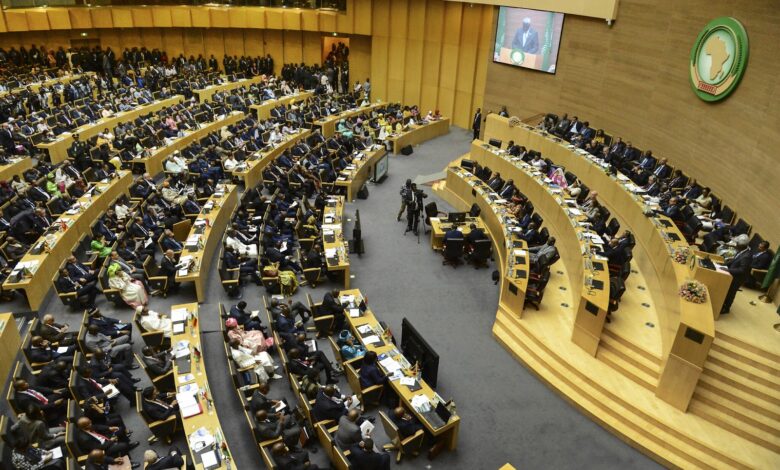DR Congo Appeals To AU To Support UN Examination Of Rwandan ‘Aggression’
The Luanda and Nairobi process to resolve the conflict is hitting deadends as both Kenya and Angola and facing government transitions which have affected peacemaking between DR Congo and Rwanda.

The Democratic Republic of Congo government is appealing to the African Union’s Peace and Security Council to support its demand for the President of the United Nations Security Council to examine the report by United Nations experts on Rwandan aggression against DR Congo.
DR Congo wants the UN Security Council to “draw all the necessary lessons and sanction Rwanda and the leaders of M23, some of whom have been under UN sanctions since 2013”.
Congolese Vice Prime Minister and Minister of Foreign Affairs, Christophe Lutundula, requested Wednesday, August 31, 2022, during a virtual meeting of the Peace and Security Council of the African Union.
The report by UN experts “throws light not only on the extent of prejudice suffered by the Congolese populations in the zones invaded by the enemy but also on the responsibilities of Rwanda in this crisis by confirming, with proof, the aggression against DR Congo by Rwanda due to the attacks carried out directly by its armed forces against the DR Congo armed forces, FARDC, on Congolese territory and the support with war materials and troops given to M23”.
The analysis of the document “would permit tackling the problem from the roots and sustainably cure it”. For the DR Congo government, it is a vital aspect of the dossier that the African Union, particularly its Commission and its Peace and Security Council, cannot ignore.
“In effect, it would be incomprehensible and inadmissible and scandalous that the United Nations and the African Union remain silent and indifferent to such a serious violation of the fundamental regulations guarding relations between states and contained in their founding acts, namely the respect of the sovereignty and territorial integrity of states and the non-interference in their internal affairs,” declared the Congolese foreign minister.
Two principal political and diplomatic initiatives are currently underway to de-escalate between Kinshasa and Kigali, and they are supported by the East African Community and the African Union.
On the one hand, the “Nairobi process” was placed under the joint leadership of the outgoing Kenyan president, Uhuru Kenyatta and the DR Congo president, Felix Antoine Tshisekedi Tshilombo. On the other hand, the “Luanda process” led by the Angolan head of state, President Joao Goncalves Lourenco, mandated by the 16th extraordinary summit of Heads of State of the African Union held in Malabo, Equatorial Guinea on May 28, 2022, on terrorism and anti-constitutional changes of government.
The two initiatives seem to have reached a dead end. After the funeral of former Angolan president Jose Eduardo dos Santos, Angola hopes to relaunch the dialogue between Kinshasa and Kigali.
On its part, Kenya is now preoccupied with finalising its electoral process, and it would only be after that process that it might also relaunch the “Nairobi process”.
Support Our Journalism
There are millions of ordinary people affected by conflict in Africa whose stories are missing in the mainstream media. HumAngle is determined to tell those challenging and under-reported stories, hoping that the people impacted by these conflicts will find the safety and security they deserve.
To ensure that we continue to provide public service coverage, we have a small favour to ask you. We want you to be part of our journalistic endeavour by contributing a token to us.
Your donation will further promote a robust, free, and independent media.
Donate HereStay Closer To The Stories That Matter




